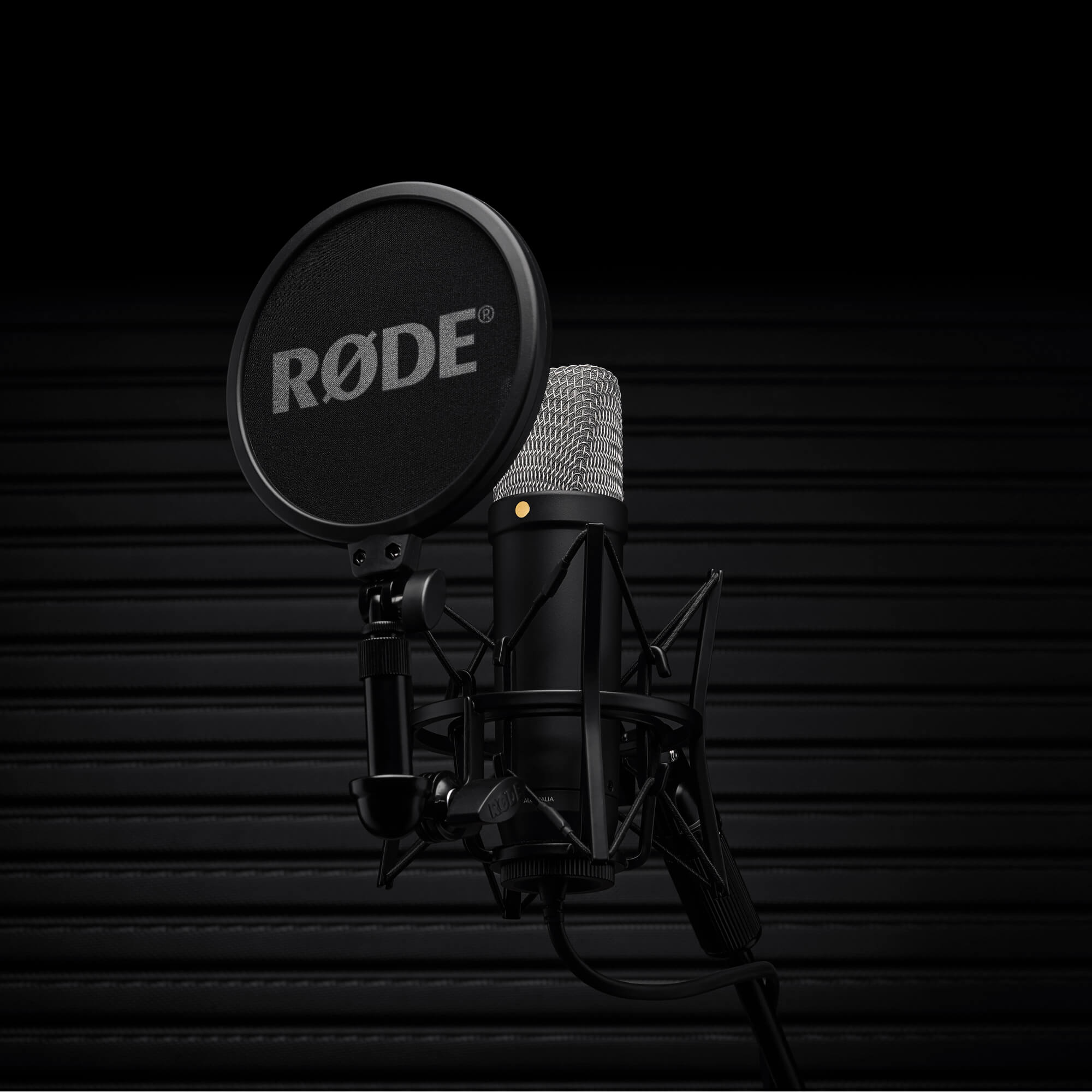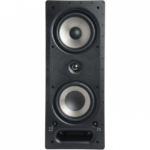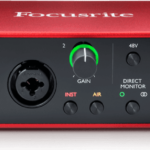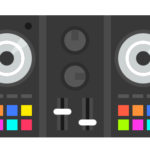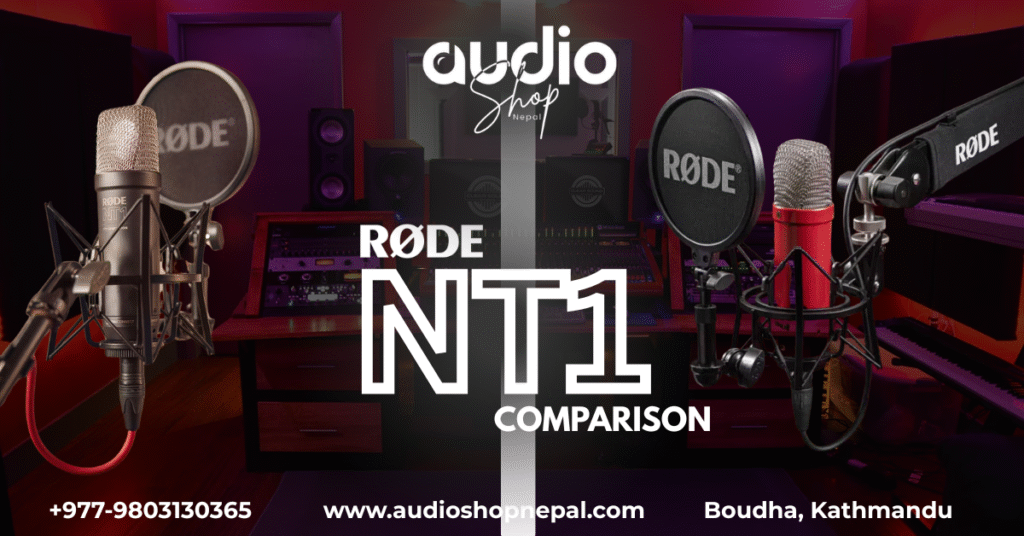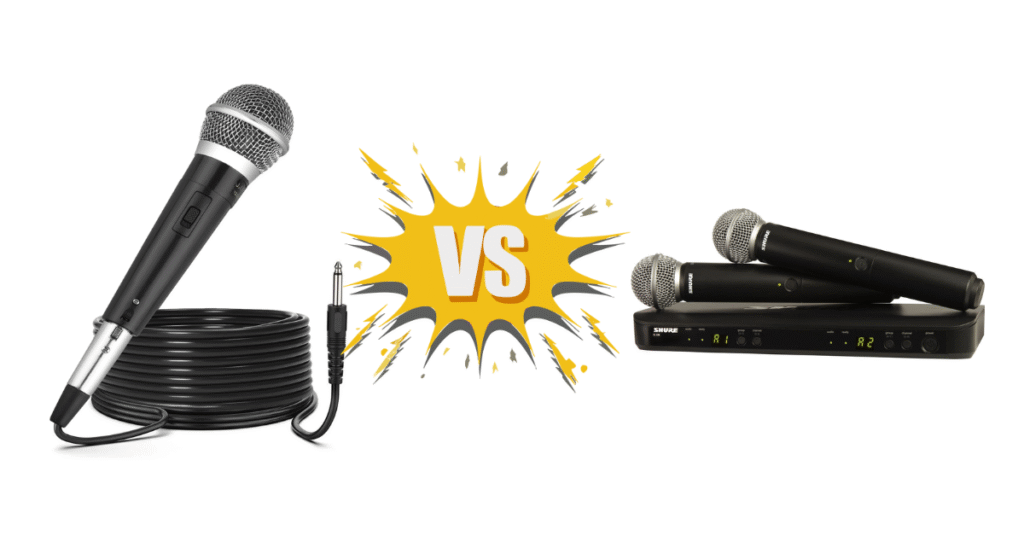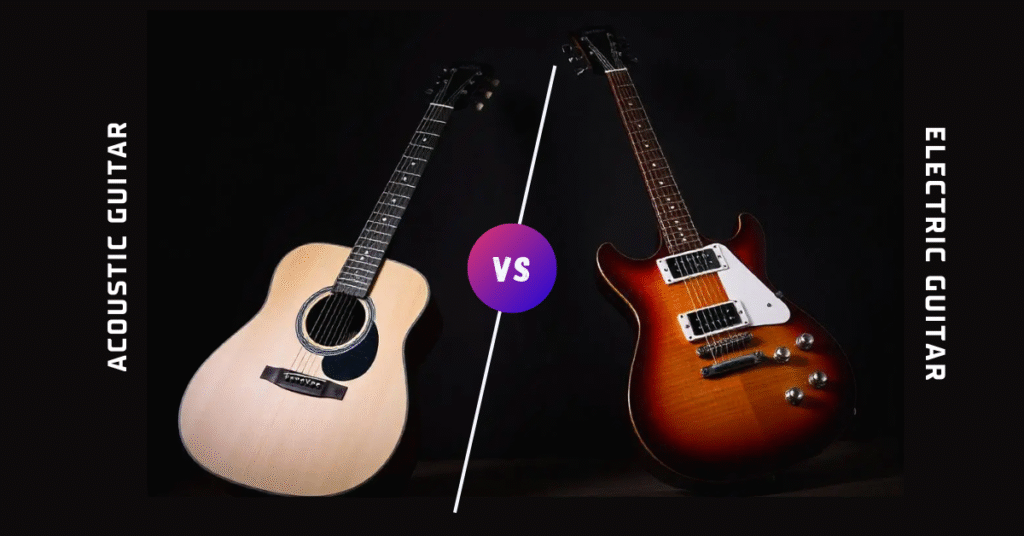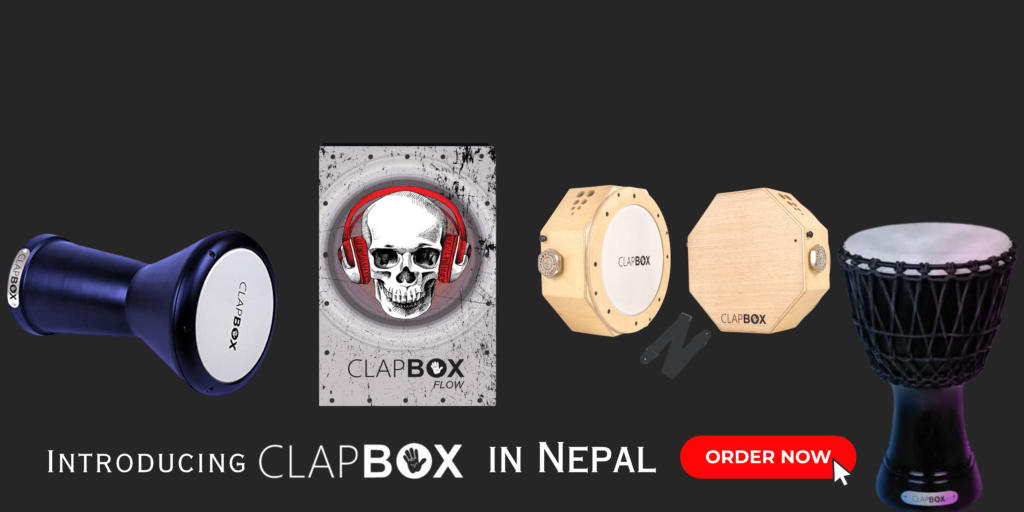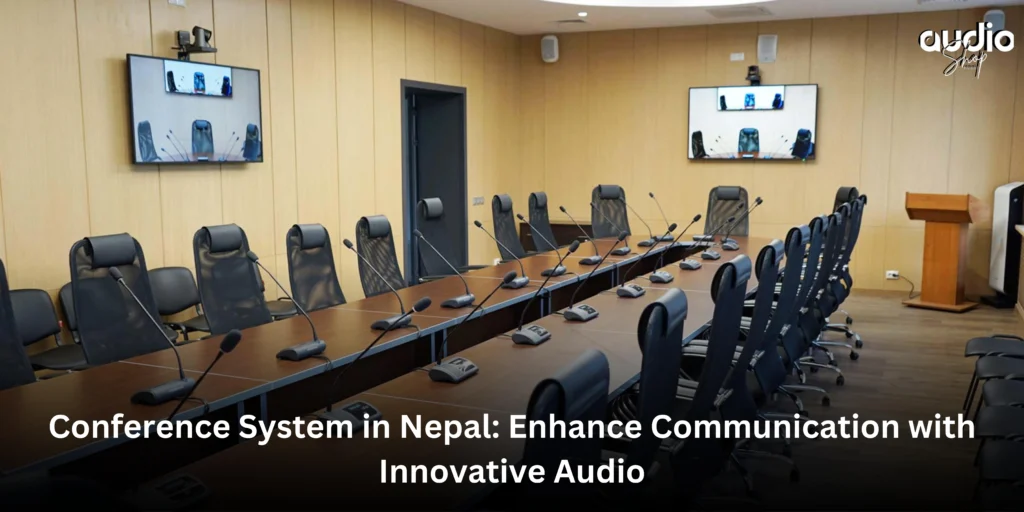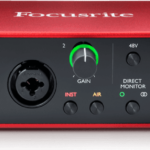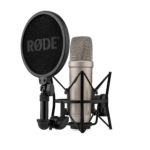How to choose a mixer for PA Systems?
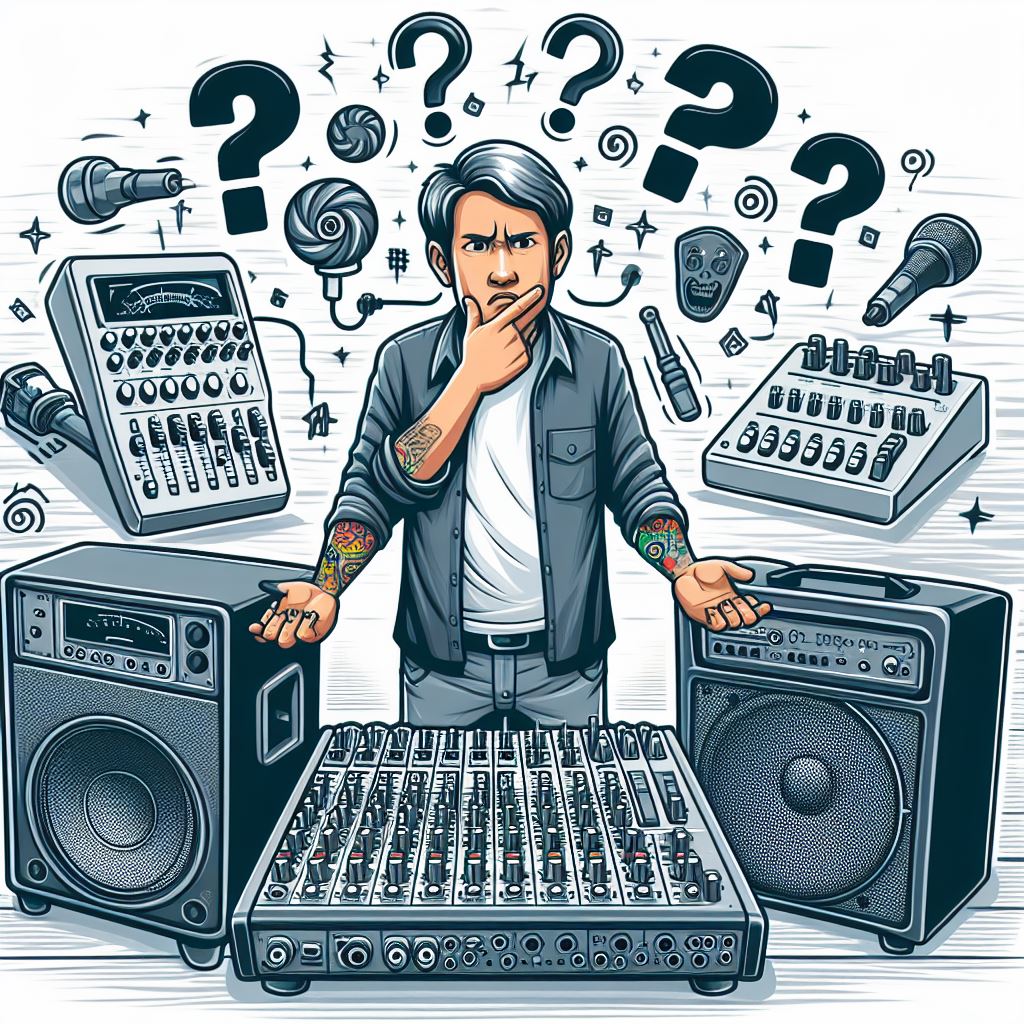
Before selecting on a mixer for PA Systems, it’s important to understand what a mixer is. Mixers are pieces of equipment designed to organize multiple input audio signals into a balanced arrangement while also fine-tuning the tone quality to make sure the output music is pleasant to listen to. Mixers come in a variety of styles and models to meet a wide range of purposes and tastes. At Boudha Music Store, we offer a variety of mixer styles and models to cater to a wide range of purposes and tastes.
In this buyer’s guide we’ll be addressing three basic types of audio mixers:
- Recording mixers, also referred to as studio mixers,
- Live sound mixers, also referred to as PA mixers or sound system mixers,
- DJ mixers
Types of mixer
Mixers are generally categorized into three types based on their internal structure.
- Analog mixer: An analog mixer is a type of audio mixing device that adjusts the volume and tone of input audio signals using traditional electrical circuitry, without converting the signals into digital format. Typically, control knobs and faders are arranged on the top panel, facilitating an intuitive understanding of signal flow and audio status. Analog mixers are simple to operate, with a mechanical interface that allows you to easily alter numerous parameters.
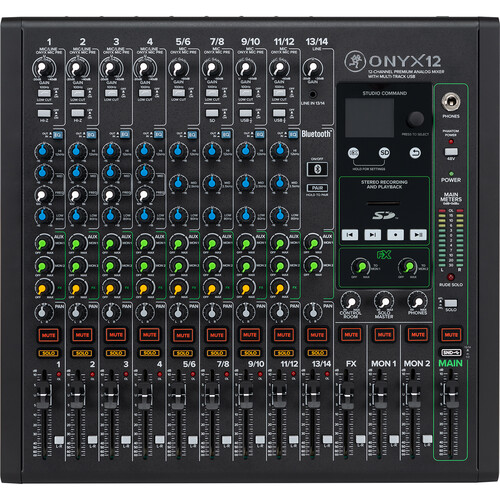
Analog mixer features;
- Signal Processing: Analog mixers process audio signals using traditional electrical circuitry without converting them into digital format.
- Simple Operation: Analog mixers typically feature control knobs and faders for adjusting parameters such as EQ, pan, and volume, providing a tactile and intuitive interface.
- Warmth and Character: Analog circuitry can impart a unique warmth and character to audio signals, preferred by some users for its perceived sonic qualities.
- Affordability: Analog mixers are often more affordable than digital counterparts, making them an accessible option for users on a budget.
- Less Flexible: Analog mixers may have limitations in terms of signal routing, processing capabilities, and recallability compared to digital mixers.
- Digital mixers: A digital mixer is a type of audio mixing device that processes input audio signals in digital format, as opposed to analog mixers, which use electrical circuitry. Digital mixers use digital signal processing (DSP) technology to provide precise control over factors such as volume, equalization, dynamics, and effects, allowing for a variety of tone alterations that would be impossible with analog equipment. These mixers have a variety of capabilities that may be accessed by digital interfaces such as touchscreens or computer software, providing for greater flexibility and agility. Furthermore, digital mixers can rapidly save and remember settings, even as the number of channels increases, while remaining compact. While digital mixers may take more knowledge to set up properly, they offer significantly more functionality than analog mixers.
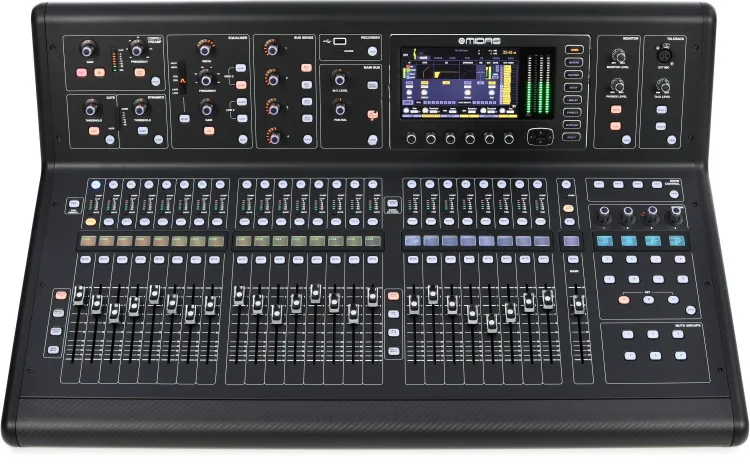
- Digital Signal Processing (DSP): Digital mixers process audio signals in digital format using DSP technology, allowing for precise control over parameters such as EQ, dynamics, and effects.
- Flexibility: Digital mixers offer extensive routing options, flexible signal processing, and advanced features such as scene memory and remote control, providing greater flexibility and versatility.
- Effects Integration: Many digital mixers include built-in effects processors with a wide range of effects, such as reverbs, delays, and modulation effects, allowing for creative sound shaping.
- Recallability: Digital mixers can save and recall settings instantly, making them ideal for live sound applications where quick setup changes are necessary.
- Complexity: Digital mixers may have a steeper learning curve due to their advanced features and digital interfaces, requiring some users to invest time in learning and understanding the system.
- Powered mixers: Powered mixers are simply analog mixers with built-in power amplifiers. This unique function allows sound to be played directly through speakers attached to the mixer. Powered mixers provide ease and simplicity, especially in installations where the same equipment is continuously connected, because they may be operated simply by turning on the power. This integration simplifies the operation process, making powered mixers a viable option for a variety of audio setups.
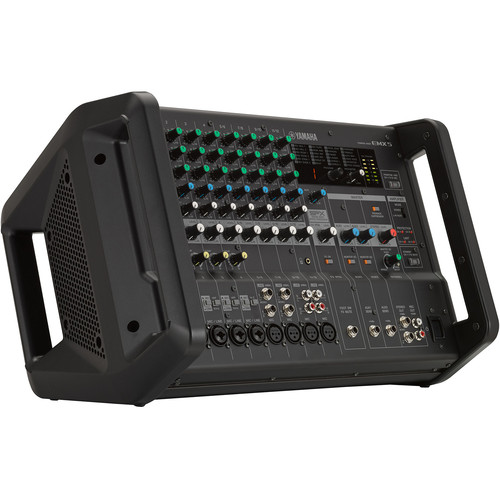
- Integrated Amplification: Powered mixers feature built-in power amplifiers, allowing them to directly power passive speakers without the need for external amplification.
- All-in-One Solution: Powered mixers provide an all-in-one solution for mixing and amplification, simplifying setup and reducing equipment footprint.
- Portability: Powered mixers are often compact and lightweight, making them ideal for portable PA systems and smaller venues.
- Limited Expandability: Powered mixers may have limited expandability options compared to separate mixer and amplifier setups, as they are designed for standalone operation.
Determine Your Needs?
Determining your needs when choosing a mixer for your PA system is a crucial first step in the selection process. Here are some key actions you can take to assess your requirements effectively at Boudha Music Store:
- Venue Assessment:
Evaluate the size and acoustics of the venue where you’ll be using the PA system. Larger venues may require more channels and higher power handling capabilities, while smaller venues may have different space constraints.
- Input Sources Evaluation:
Identify all the audio sources you’ll need to connect to the mixer. This includes microphones, instruments, playback devices (such as CD players or laptops), and any other audio sources relevant to your setup.
- Consider Future Expansion:
Anticipate potential future needs and expansions of your audio system. If you plan to add more instruments, microphones, or other devices in the future, ensure that the mixer you choose can accommodate these additional inputs.
- Usage Scenario:
Determine how you intend to use the PA system and mixer. Are you primarily hosting live performances, conducting recording sessions, or both? Different usage scenarios may require different features and capabilities from the mixer.
- Budget Allocation:
Establish a budget for your PA system and mixer. This will help you narrow down your options and prioritize features based on their importance to your setup.
- Technical Requirements:
Consider any technical requirements specific to your application. For example, if you’re working in a digital audio environment, you may need a mixer with digital connectivity options such as USB, AES/EBU, or Dante.
- Evaluate Existing Equipment:
Take stock of any existing audio equipment you already own, such as amplifiers, speakers, and outboard gear. Ensure compatibility with the mixer you choose and consider how the new mixer will integrate with your existing setup.
Choosing the right mixer for your PA system is essential for achieving optimal sound quality and performance in live events, venues, or studio settings. Understanding the different types of mixers available and assessing your specific needs and requirements are key steps in the selection process. Whether you opt for an analog mixer for its simplicity and intuitive operation, a digital mixer for its advanced processing capabilities and flexibility, or a powered mixer for its integrated power amplification, ensuring compatibility with your setup and considering future expansion possibilities is crucial.
At Audio Shop Nepal Boudha Music Store, we understand the importance of finding the perfect mixer for your PA system. As an all-in-one destination for all your musical desires, we offer a wide range of mixers from leading brands, including analog, digital, and powered options, to suit every budget and application. Our experienced team is dedicated to providing expert guidance and assistance to help you make the right choice for your audio setup. With our comprehensive selection, competitive pricing, and exceptional customer service, Audio Shop Nepal is your ultimate destination for all your mixer and audio equipment needs.
Here’s a list of popular mixer brands that you may find at Audio Shop Nepal and other similar establishments:
Whether you’re hosting live performances, recording sessions, or setting up a sound reinforcement system, trust Audio Shop Nepal as Boudha Music Store to deliver the perfect solution to meet your musical needs. Let us help you take your sound to the next level. Visit us today and experience the difference firsthand.
FAQ’s
Analog mixers process audio signals using traditional electrical circuitry, while digital mixers process signals in digital format using DSP technology. Digital mixers offer more advanced features, flexibility, and precise control compared to analog mixers.
Powered mixers feature built-in power amplifiers, making them convenient for setups where equipment is continuously connected. Whether you need a powered mixer depends on your specific setup requirements and preferences.
The number of channels needed depends on the number of input sources you’ll be connecting to the mixer. Consider the total number of microphones, instruments, playback devices, and other audio sources when determining the required channel count.
Popular mixer brands for PA systems include Mackie, Yamaha, Midas, Behringer, Allen & Heath, Soundcraft, PreSonus, QSC, and more are available at Audio Shop Nepal Boudha Music Store.
While both mixers and audio interfaces may accept audio input and output, mixers provide more control over signal routing, mixing, and processing, making them ideal for live sound reinforcement and recording applications. Audio interfaces primarily convert analog audio signals to digital format for recording reasons.
For a passive PA system, you’ll need a mixer with main outputs that can connect to an external power amplifier. Look for mixers with balanced XLR or TRS outputs suitable for feeding the amplifier inputs.
Yes, you can use an active mixer with a passive PA system by connecting the mixer’s main outputs to the inputs of an external power amplifier. However, be sure to match the mixer’s output levels to the amplifier’s input requirements to avoid distortion or damage.

